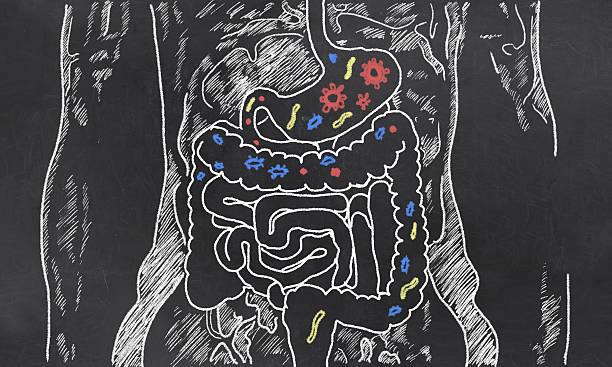If food is not digested, various harmful effects occur in the body. These include physical problems like weight gain, increased lipid profile, increased uric acid, increased blood glucose levels. So the digestive process should be normal.

Why is digestion important?
Digestion is very important for good health. If it is obstructed or if problems occur, the whole body can become stagnant.
The digestion process has three stages: the food being eaten, the complete digestion of that food, and its absorption into the body after digestion. These three stages are crucial for the body.
Obstruction in digestion can lead to problems like weight gain and obesity. Furthermore, even after eating for a long time, the body may not receive enough nutrients.
How to increase digestion?
Each person’s metabolism or digestion is different. It is often observed that one person gains weight while eating the same food that another person does not. By eating a healthy way you also can increase your digestion.
Observation:
Always observe which foods cause digestive problems. Different types of food can cause digestive issues, such as fried, spicy, or sour foods.
Many people have trouble digesting milk. In such cases, dairy foods should not be completely eliminated; instead, tolerance should be gradually increased. This is because an enzyme called lactase, which aids in milk digestion, may stop being secreted by the body but can start being secreted again.
Additionally, weak digestion may result from a lack of certain vitamins, which can be strengthened through specific measures.
The process of increasing or strengthening digestion varies from person to person. Therefore, it is important to observe which foods cause problems for individuals.
Exercise:

Nutritionists believe that not all physical exercises improve digestion. They suggest that exercises targeting the abdominal area and lower body are particularly beneficial for the digestive system.
For instance, sitting on a revolving chair facilitates body movement, and twisting the upper body from side to side can enhance the digestion process.
Lying down with both legs elevated at a 90-degree angle and rotating them in circular motions from left to right and vice versa can also be very effective. Spot jogging or light jumping in place are also beneficial exercises.
Breathing Exercises:

The effectiveness of various physical activities largely depends on the body’s oxygen supply. Adequate oxygen is crucial for the digestion and absorption processes. Therefore, breathing exercises play a significant role. Inhaling through the nose and exhaling through the mouth increases oxygen supply to the body, facilitating digestion.
Diet:

Understanding the types of food that strengthen digestive power is important. For example, vegetables should be cooked with oil, and consuming lemon with meat aids digestion. Drinking a small amount of lemon water after each meal is also beneficial. Additionally, consuming yogurt, a natural source of gut-friendly bacteria, can enhance the digestion process. Try to add the best herbs for digestion improvement.
Sleep:

Digestive power is significantly affected by staying awake at night. During the night, atmospheric oxygen levels are low, and inadequate lung usage reduces oxygen intake. Being awake at night hampers the digestive process due to a reduced oxygen supply. Therefore, adequate nighttime sleep is crucial for improving or maintaining efficient digestion.
Additional Ways to Improve Digestion:
- Food should be chewed thoroughly to aid in proper digestion.
- Dinner should be eaten between 7:30 PM and 8:00 PM, avoiding late-night meals to ensure better sleep quality.
- Adequate water intake is essential for proper digestion; aim for 10-12 glasses of water daily, but avoid drinking excess water before and between meals to prevent indigestion.
- Maintaining a stress-free environment and avoiding smoking are also beneficial for digestion.




Pingback: Ash Gourd Juice: Ash Gourd Juice Benefits and Recipe
Pingback: Several herbs assist with digestion. - theguthealthstuff.com
Pingback: Foods That Help Ease Constipation - theguthealthstuff.com
Pingback: Some ways to maintain good digestion in winter - theguthealthstuff.com
Pingback: Spices with Healthy Benefits - theguthealthstuff.com
Pingback: Gastric Problems | Oil or Spices -which one is responsible for this?
Pingback: kanji Rice For Gut Health - theguthealthstuff.com
Pingback: Foods to Eat Instead of Medicine to Get Rid of Gastric Problems - theguthealthstuff.com
Pingback: What to eat every day for gut care - theguthealthstuff.com